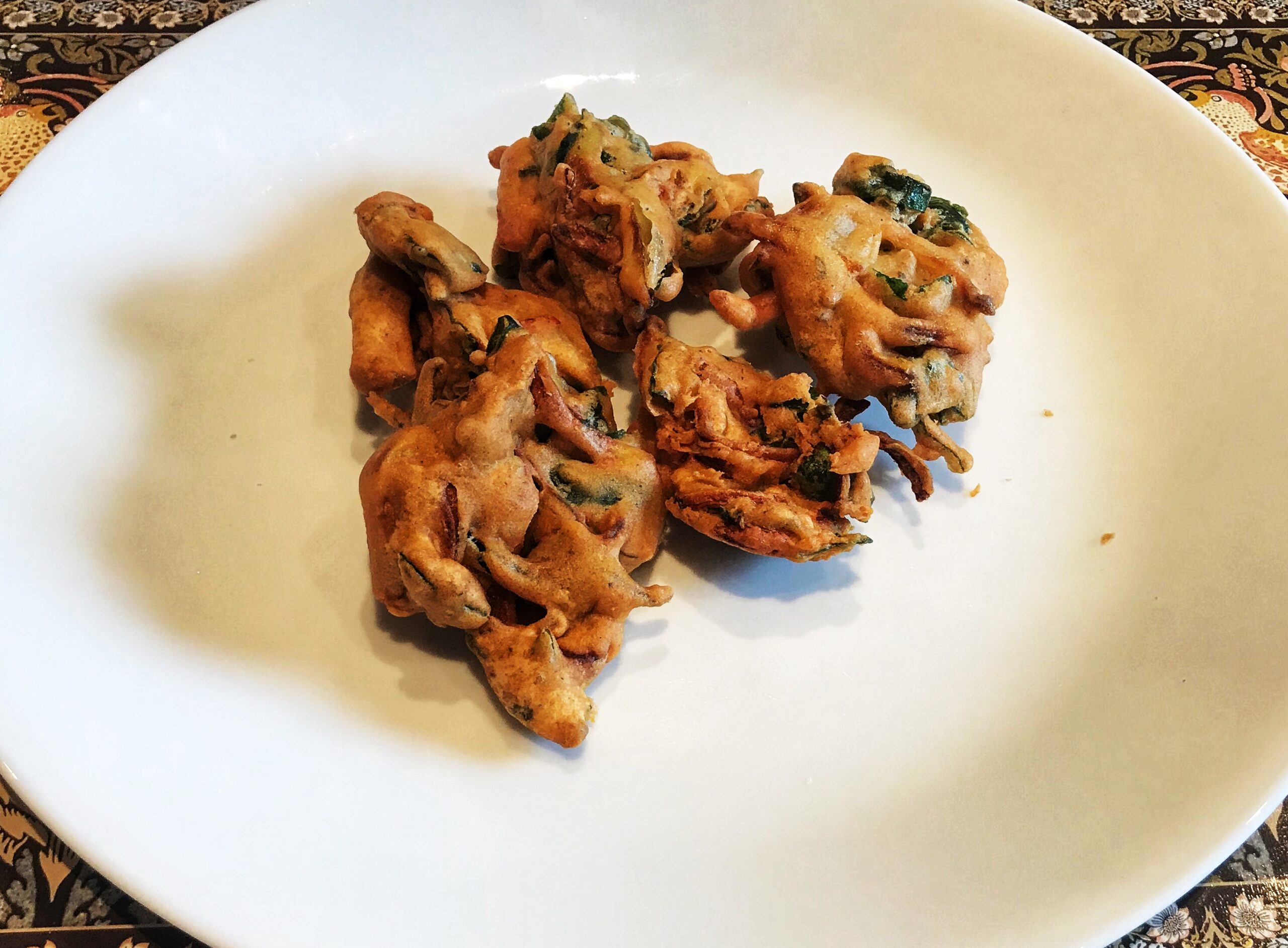When you wake up on one of the many grey, rainy days we have had in Cambridge this winter, you might curse the conditions, slam the snooze button, bury your head in your blanket, and try to dream away another ten minutes of this dreary weather.
But not me.
When I wake up to the drizzle of rainfall, I can’t help but salivate and be transported back home. It’s a Pavlovian response from my childhood. Because when I was growing up, precipitation meant only one possibility: Pakoras.
The proud Pakora is a popular South Asian fried snack made from besan, also known as chickpea flour. In the Sheikh family household, eating Pakoras on a rainy day was a delightful ritual from my mother’s childhood in Pakistan that she carried with her when she immigrated to Canada.
It doesn’t rain often in Pakistan – but when it does, it is no ordinary rain. In some parts of the country, half of the annual rainfall descends in just two months: monsoon season. Streets are flooded. The prospect of leaving the home is unappetizing. But in a house full of parents, siblings, cousins, nieces, and nephews, how does a family pass the time trapped inside by torrent of precipitation? Obviously, the answer can be found with the powerful Pakora.
The pivotal Pakora is the perfect provision on a rainy day. It can be made with ingredients from the pantry and an adventurous assortment of vegetables from the fridge – no need to brave the downpour to delight in this delicious delicacy. The crispy, golden, fried snack warms you from the inside on a damp, depressing day, especially when paired with a hot cup of chai.
Rather than feeling trapped inside, rainy days for me mean quality family time where we would form an assembly line of vegetable choppers, batter mixers, fryers, and seasoners. We would all relish the beautiful crackling of the batter as it entered the hot oil, filling the kitchen with the aroma of fragrant, fresh Pakoras.
Like the besan that binds together the onions, potatoes, and spinach, the pragmatic Pakora binds together families. Our whole family would sit around my childhood kitchen table, my brothers and I hearing stories of my nani, my maternal grandmother, and the warm and inviting home she created, my mother reminiscing of sitting around her childhood kitchen table eating Pakoras with her family.
So the next time you’re feeling peckish on a particularly pessimistic day, I propose you pass the time with the unparalleled prestigious Pakora.
Pakora Recipe
1 small onion
1 small potato
½ cup besan (chickpea flour, gram flour, or garbanzo bean flour)
½ cup water
Handful of baby spinach (or kale)
Salt
Frying oil (canola, peanut, or avocado oil)
2-3 green chillies or 1-2 tsp crushed red chilli*
1-2 tsp crushed coriander seeds*
1 tbsp methi (fenugreek leaves)*
2 tbsp gin*
*optional
- Slice onions lengthwise.
- Cut potato into matchsticks.
- Combine besan and water and whisk until no clumps. Add more besan or water until a moderately thick paste (option to add a small amount of gin, which leads to a crispier fry).
- Add onions, potatoes, spinach, chillies*, coriander seeds*, methi*, and salt.
- Heat oil in a wok until it is approximately 350-375 degrees Fahrenheit.
- Add a spoonful of batter in the hot oil at a time, making sure not to overcrowd the pot. Don’t move the pakoras too quickly or they will fall apart. After a couple minutes you will be able to flip them and move them around the oil to make sure they are cooked and crispy on all sides.
- Remove the Pakoras from the oil when brown and crispy and drain on paper towel, making sure to sprinkle a bit of additional salt on the Pakoras while still hot.
- Enjoy on its own, or with a tamarind or mango chutney.
“The Food Project” is a collection of stories of food cultures from our diverse HKS community. Writers submit pieces exploring their relationship with food and cuisine from their families and countries – from a personal connection to a dish, to memories of family meals, to the significance of a national cuisine. Writers submit a recipe at the end of each piece for your tasting pleasure!
If you’re passionate about food and want to contribute to The Food Project, please email the_citizen@hks.harvard.edu.
